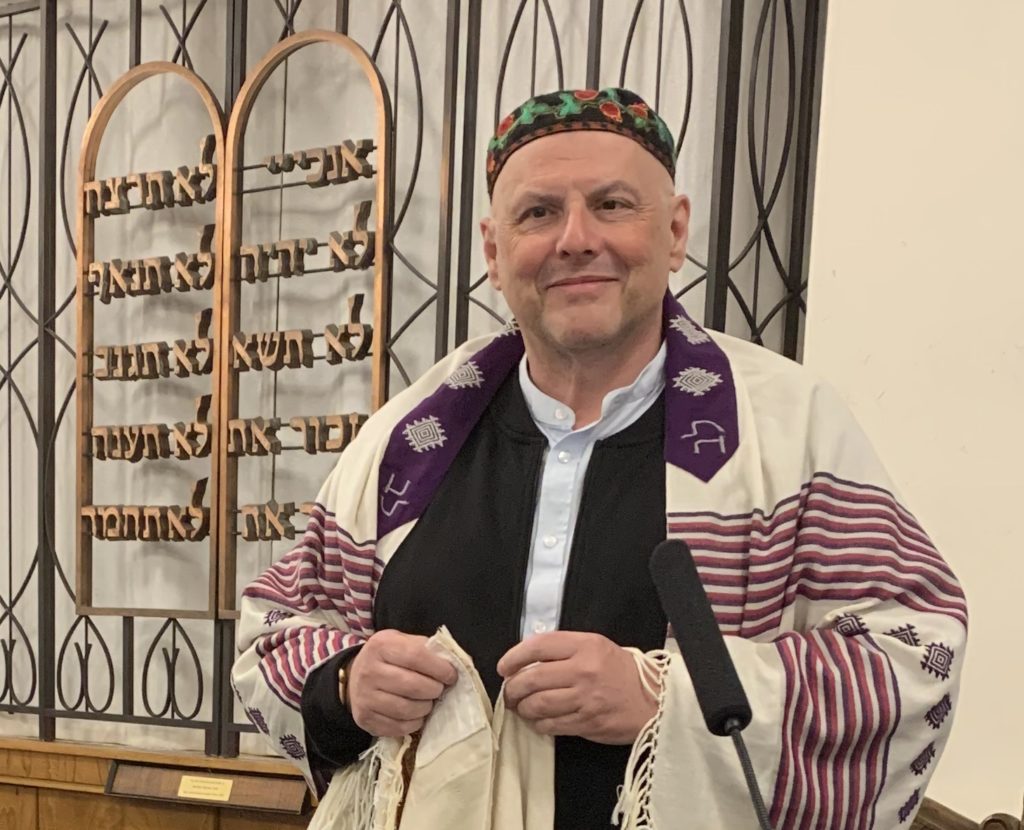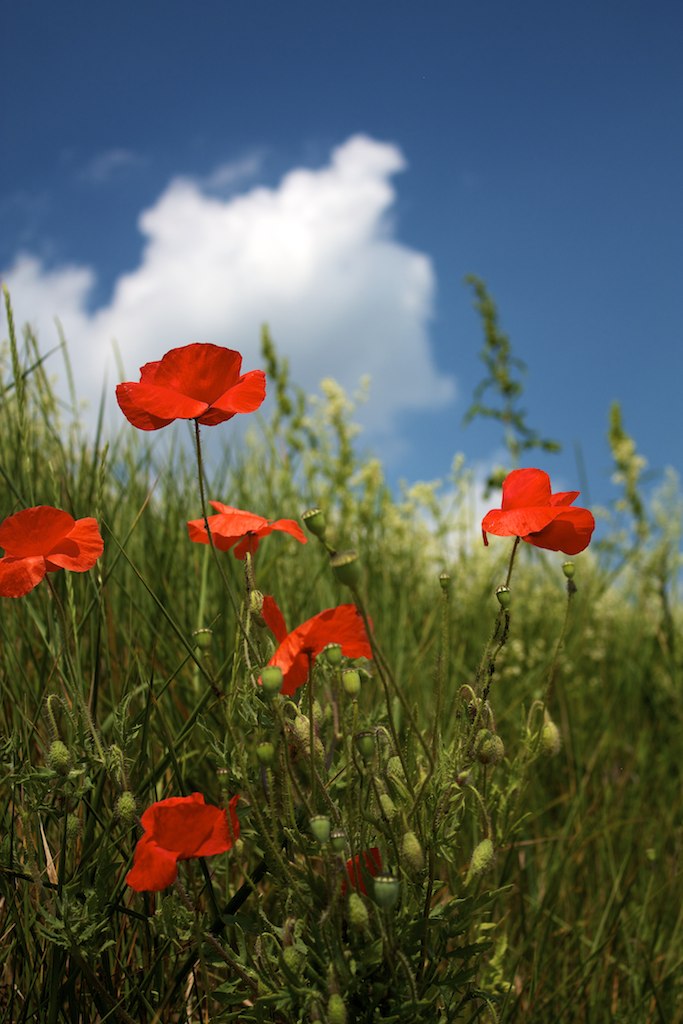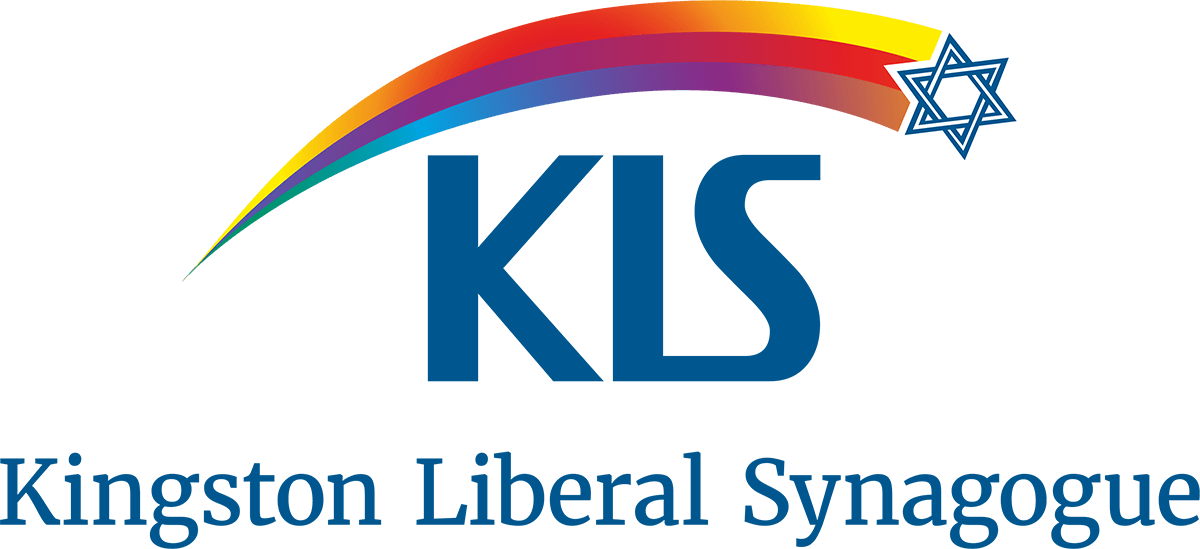Rabbi René’s sermon on the eve of Remembrance Day
On Saturday 13th November – the Shabbat before Remembrance Sunday – Rabbi René gave a powerful and fascinating sermon focussing on the place where he was born and grew up – Alsace – a region at the French / German border. You can read it below.
Every year, at the 11th hour of the 11th day of the 11th month, we pause and remember those who fell during the first World War. In France, people have a day off on the 11th of November. There are ceremonies everywhere. In almost every village and town, there is a war memorial, and officials lay wreath on that day. We hear testimonies, we read names, we remember family members who fell in the battle fields. Like in the United Kingdom, the 11th of November is marked in a very solemn manner. We also mark D-Day, or the end of the Second World War on the 8th of May, but the mood is brighter. Truth is, it is in the spring, and people usually have a long weekend in May.

Today, I wanted to talk about Alsace, a region at the French-German border in the east of France. I was born there; I grew up in this part of the world. Alsace is landlocked between the Vosges in the west, mountains that marked the border between France and Germany, and the Rhine in the east, that separates both countries. Culturally, Alsace has been of much of its history in the Germanic world, until Louis XIV attached Strasbourg to the French Kingdom in 1681. The German influence is still very strong, in the names of places for example: Strasbourg, Niedersteinbach, Hartmanswillerkopf, Voeglinshoffen, and so on. French people are very bad at pronouncing our names. How many times have I been called Bretzel?
Alsace, as you know, has always been the main reason why Germany and France went to war. In 1871, the new German Empire built itself after the French defeat in Sedan. This led to a national shame and frustration that was part of the reasons of the first world war. When the Germans invaded Alsace in 1940, they attached Alsace to the Gau of Baden, and Moselle, the German speaking part of Lorraine, to the Gau of Sarre and Palatinat, and created the Gau Westmark, the Western March.
My great grandmother was born German in the 1890s. Her daughter was born French just after the end of the First World War. My mother was born French just before WW2 broke out, and my dad was born German in 1943. My great grandmother never spoke a word of French. Her daughter, and my parents, were completely bi-lingual. And I am the first generation who speaks only French.
We lived in a small town in Southern Alsace, called Soultz, in a cul-de-sac. An elderly lady told us that she lived her entire life in one of the houses in the street. Her mother died in 1916, because a grenade fell from the mountain above and destroyed part of the house. Soultz is located at the bottom of one of the WW1 battlefields, the Hartmanswillerkopf, or Le Vieil Armand, as we say in French. We can’t even agree on the name of this place!
Why am I telling you this today?
We’ve been torn between two countries since the 17th century. Truth is, most Alsatians are Francophiles, but for some, national loyalty was a challenge. So, over the decades, we’ve developed a double identity. We are very attached to our region, its culture, its food, its landscape, and monuments. But at the same time, we have become profoundly European. The first European institution to be based in the city was the Central Commission for Navigation on the Rhine, set up in 1815 by the Congress of Vienna. However, the main institutions were set up after WW2: in 1948, the Council of Europe – which is not part today of the EU -, and the European Parliament, directly elected by citizens since 1977. A visit to these institutions was almost mandatory for all pupils of Alsace.
When we say, never again, it must be followed by real acts, and the European construction was a strong statement against war in Europe. War is a phenomenon of all periods of history. We are tribal beings, and we want to protect ours against the others. We fight for many reasons, territory, access to resources, determination to conquest, but what the world discovered in 1918 was the ugly face of war, an industrialized way of killing each, combats that occur in large sways of lands, destructions to a scale unheard of until then. And it got worse in the following war. We have now the power to destroy our entire species.
When we remember the wars of the past, we think about the destructive forces we have today. We say names of people whose lives were taken too early, we think about entire regions destroyed, lives shattered, families scattered. War is not a series of dates in a history book. War is a very human, almost intimate experience that people go through collectively.

I am the first man in my family who did not have to go to war, but I saw first-hand how it has impacted people who lived before me, as you are, I am sure, aware of the impact of war on people in your families. The history of my region is not unique in Alsace. It happened in a form or another throughout the continent. However, it has chosen the path of reconciliation.
Rabbi John Rayner wrote a simple, and yet magnificent text about the human family:
Who are our brothers and sisters? Are they only members of our own family or clan or people or nation? All men and women, of every colour and creed, of every race and nation, are our brothers and sisters, for we are all members of the human family. Like brothers and sisters, we should feel a sense of common identity. Like brothers and sisters, we should feel each other’s pain and seek each other’s welfare. For God, who created us, cares equally for all of us; therefore we should care equally for one another.
The passion for war is very strong amongst nations. Using force to respond to a difficult situation is often the preferred option. Diplomacy is difficult and we need goodwill on both sides. But as Jews it is our duty to be on the side of peace, to promote reconciliation even if it means having difficult conversations sometimes. The cost of peace is just our pride. The cost of war is our lives. So I guess the choice is easy.
“Red Poppies, Alsace, France” by Rob DeGraff is licensed under CC BY-NC-ND 2.0
